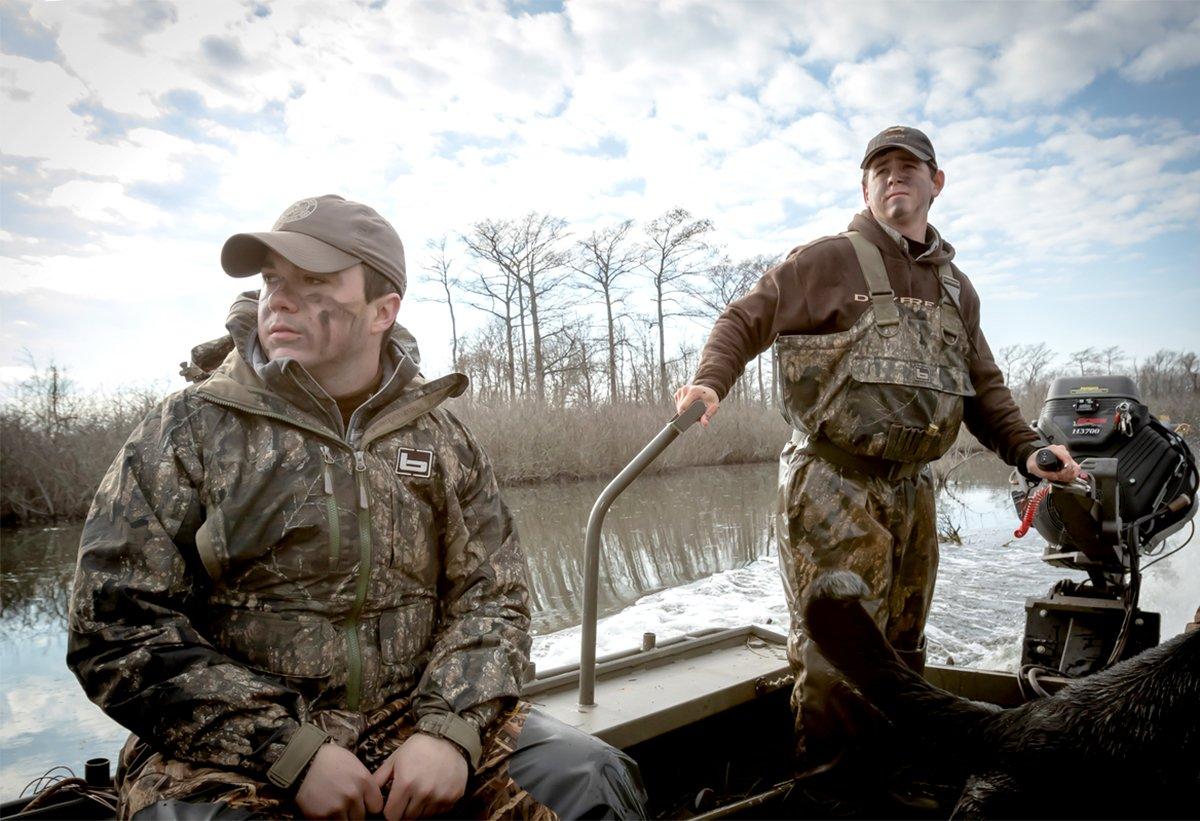When it comes to waterfowling, setting realistic goals goes a long way
Ambitious folks love to set goals, and duck hunters are no different. But sometimes, our visions don't mesh with reality.
When I was young, my buddies and I would naively discuss silly waterfowl hunting aims we hoped to achieve that year. I want to kill 50 birds at Rush Lake in October, I'd say. What folly. It's foolhardy to set numerical goals when dealing with wild animals, which, as any hunter knows, don't always follow the playbook. Further, you cannot expect specific levels of production when you have no idea what situations and conditions you might encounter.
After a few decades in the duck marsh, I have learned to focus on realistic goals for the season — attainable benchmarks over which I have some control. Let's examine seven commonsense objectives you can achieve this fall and winter.
1. Improve
No matter your level of experience, you can always hunt more skillfully and efficiently. That doesn't necessarily mean you'll shoot more ducks. Rather, you simply improve your proficiency with the various crafts that compose our sport, including calling, shooting, concealment, scouting, boat handling, calling shots, dog training, and others. Getting better at any of those requires time and effort, but that's part of the waterfowling journey. And steady improvement will help you put more birds on the strap and derive more enjoyment from the sport.
2. Don't Repeat Dumb Mistakes
Duck hunters are somewhat like NFL quarterbacks. Every signal-caller throws a few interceptions. The good ones just learn to avoid dumb turnovers. I try to do the same every year, poring through journal entries to see where and how I goofed up. (Spoiler alert: It's a frequent occurrence.) Then, I envision how I'll eliminate those gaffes in similar circumstances going forward. This simple exercise in self-improvement saves lots of time, work and embarrassment.
3. Explore
Wanderlust and the yearning for new experiences play big roles in waterfowling's appeal. Still, many folks get stuck in a rut and hunt the same spots again and again, never seeing new water. This season, hunt some fresh areas simply for the experience. If nothing else, view such trips as extended scouting missions. Yeah, you might strike out. But you might also strike it rich and expand your list of hotspots.
4. Expand
Much like finding new spots, it's smart to try new methods or tactics. Give the timber a break one day and try big-river hunting. Or avoid the local marsh for a bit to focus on dry-field honkers. You get the idea. New experiences keep things exciting and boost your overall hunting resume.
5. Give
Being generous isn't always easy. Everyone talks about it, but many folks won't sacrifice personal hunts to provide a young person or newbie with a great experience. But didn't someone — your father or another mentor — take time and expend substantial effort to bring you into the duck hunting fold? Commit to giving something back. I'm betting you'll find it's more rewarding than just shooting a few birds yourself. And you'll be helping the sport substantially.
6. Enjoy
This can be tough — seriously. Sometimes, we fret about finishing the day's limit and worry about where we'll go tomorrow or next week. Slow down and take time to appreciate the hunt. Success comes and goes, and as I learned years ago, no one hands you a trophy at the season's end for killing the most ducks. Savor each moment and every tiny element that makes up a day in the marsh. The enjoyment you derive from waterfowling will increase substantially.
7. Go
Here's the easiest goal to meet: Get out there. Get up in the morning and go, no matter if the day looks promising or not. I've never regretted throwing out decoys and watching the sunrise. I have, however, kicked myself for sleeping in or talking myself out of time afield. Whether you fill straps or return with an empty boat, simply going duck hunting is always time well spent.
Click here for more Realtree waterfowl hunting content. And check us out on Facebook.







